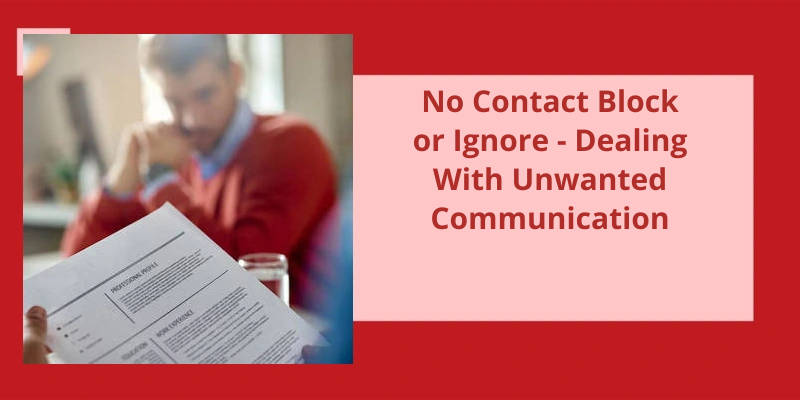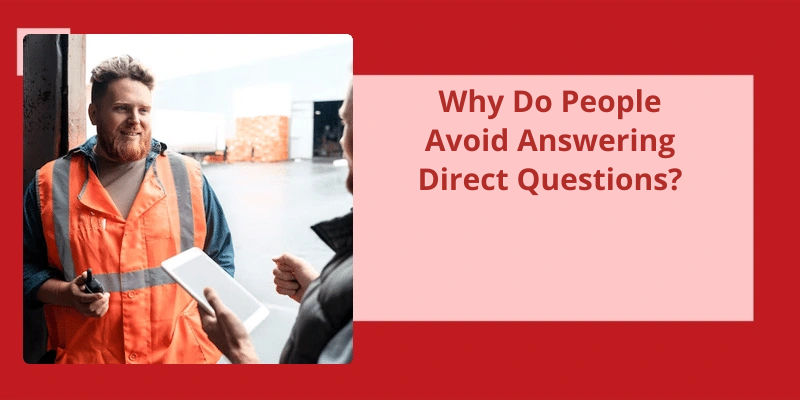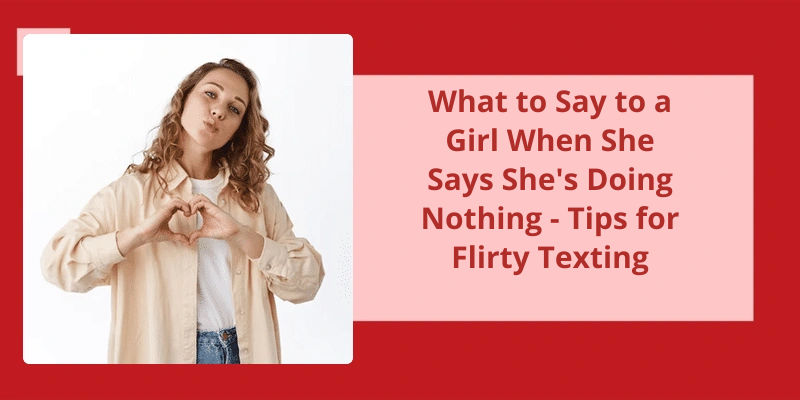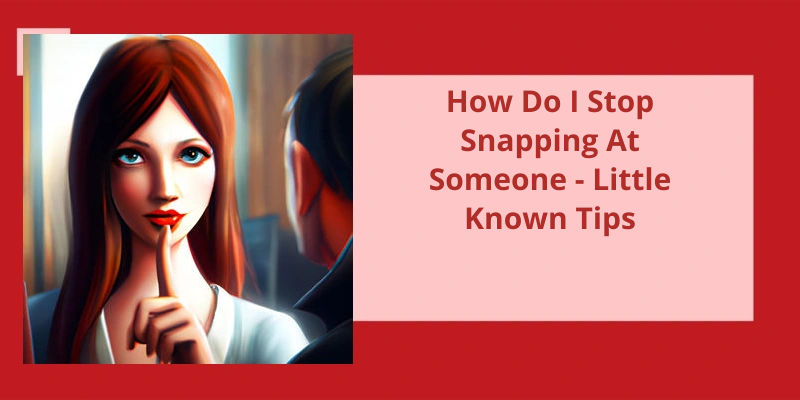Dealing with unwanted communication can be a challenging and sensitive situation, but sometimes, employing the strategy of no contact, without resorting to blocking, can offer a unique approach to preserving relationships or potential explanations. By choosing to ignore the person rather than blocking them, one keeps the window open for future discussions or clarifications. This choice allows for the possibility of holding onto cherished memories or acknowledging the impact someone has had on our lives, even if it means moving on from those experiences. By not burning bridges entirely, we leave room for growth and understanding, while still creating boundaries for our own well-being. In this article, we will explore the concept of no contact without blocking, and how it can offer a path towards closure, personal growth, and maintaining connections that may hold significance in our lives.
Is It More Painful to Ignore or Block?
Is it more painful to ignore or block? This question delves into the nuances of human emotions and the complexities of interpersonal relationships. People often find themselves grappling with this dilemma when faced with unwanted communication. While both ignoring and blocking can be effective strategies to deal with such situations, they come with their own set of emotional consequences.
Blocking would hurt more because it’s a gesture of permanent closure. When you choose to block someone, you’re essentially shutting them out of your life completely. This can be particularly painful if the person being blocked was once close to you or held significant importance in your life. The act of blocking signifies a complete disconnect, almost like slamming a door shut on any potential future communication. It can be emotionally challenging to sever ties in such a definitive manner.
On the other hand, when you’re ignoring someone, there’s a scope for you to potentially talk to them after a break. Ignoring indicates that the water hasnt started boiling yet; there might still be room for reconciliation or a resolution to the issues at hand. This can offer a glimmer of hope and make it somewhat easier to bear the situation. However, it’s important to note that ignoring someone also comes with it’s own emotional burden. It can lead to a sense of guilt, worry, or anxiety about the impact of your actions on the other person.
How to Effectively Communicate and Address Issues in Relationships Without Resorting to Blocking or Ignoring
- Express your concerns calmly and avoid confrontational language.
- Listen actively and attentively to the other person’s perspective.
- Avoid interrupting or dismissing the other person’s feelings.
- Use “I” statements to express how you feel instead of blaming or accusing the other person.
- Seek to understand the underlying causes of the issue before jumping to conclusions.
- Find common ground by identifying shared values or goals.
- Take a break if the discussion becomes heated, but commit to revisiting the conversation later.
- Practice empathy and try to see things from the other person’s point of view.
- Apologize when necessary and take responsibility for your actions.
- Compromise and look for win-win solutions that address both parties’ needs.
- Consider seeking professional help or counseling if the issues persist or become too challenging to handle.
They may need the additional step of blocking you to create the necessary distance and boundaries for their healing process. Blocking you during no contact could be a way for them to eliminate any potential distractions or temptations that could hinder their progress. While it may be hurtful and confusing for you, it’s important to respect their decision and focus on your own healing as well.
Why Did He Block Me During No Contact?
They might desire a complete cut-off from any form of communication to truly detach and move forward. Blocking you ensures that they won’t be tempted to reach out or be reminded of the past. Additionally, your ex might have blocked you as a form of self-protection. They could be trying to create boundaries and eliminate any potential for hurt or confusion. By blocking you, they can avoid looking at your social media profiles or receiving messages that might evoke painful emotions.
Another reason your ex might have blocked you during no contact is that they’re seeking closure. They may be trying to create distance to gain clarity about their feelings and the relationship as a whole. They might need this time alone to evaluate what they truly want and assess their emotions without any external influences.
It’s important to remember that everyones reasons for blocking during no contact can vary. Despite the uncertainty surrounding their decision, it’s essential to respect their boundaries and focus on your own healing during this period. Use this time to reflect on yourself, grow personally, and regain your own sense of self-worth. Eventually, with time and exploration, you may gain clarity and find the closure you seek.
Signs That Your Ex May Be Open to Reconnecting After Blocking You
- They unblock you on social media platforms.
- They reach out to mutual friends or acquaintances to inquire about you.
- They start liking or engaging with your posts on social media.
- They initiate casual conversations with you, either in person or through messaging platforms.
- They show genuine interest in your life and ask about your well-being.
- They bring up shared memories or inside jokes from your past relationship.
- They make an effort to spend time with you or suggest activities to do together.
- They apologize for past mistakes or wrongdoings.
- They show signs of jealousy or get upset when you mention dating or seeing other people.
- They express regret or nostalgia about the relationship ending.
- They flirt or show signs of attraction towards you.
- They make an effort to resolve past conflicts or issues that led to the breakup.
- They send random texts or reach out during significant events or holidays.
- They become more open and willing to communicate about their own emotions and feelings.
- They mention wanting to meet up or catch up on missed opportunities.
- They make plans or talk about future possibilities involving the two of you.
- They become more responsive and attentive towards your messages or calls.
- They show signs of consistent effort in rebuilding the connection or friendship.
Blocking someone during the no contact period can be a tricky decision, especially if there’s still a possibility of reconciliation. In cases where couples are taking a temporary break to gain clarity and work on themselves individually, it might be wise to hold off on blocking your ex until you’ve officially ended the relationship. This gives you both the opportunity to explore personal growth without burning any bridges prematurely. However, if the breakup is more definite and you’ve no intentions of getting back together, blocking your ex during no contact can be beneficial for your well-being and moving forward.
Should You Block Someone During No Contact?
During the no contact period, many people question whether or not they should block someone, especially when dealing with unwanted communication. However, it’s crucial to consider the specific circumstances before making a hasty decision. If there’s still a chance for reconciliation, blocking someone may not be the best course of action. Sometimes, individuals need temporary breaks within a relationship to reassess their priorities and regain independence. If this is the case, it might be wiser to hold off on blocking your ex until you’ve officially ended the relationship.
It may send the message that you’re completely cutting them off and no longer interested in pursuing a relationship. By leaving lines of communication open, it allows for the opportunity to have honest conversations and potentially work through any underlying issues. However, this approach only applies if there’s still a genuine desire to rekindle the relationship.
On the other hand, blocking someone can also provide necessary space and time for personal healing and growth. If the breakup was particularly painful or if the individual needs solitude to focus on self-improvement, blocking may be a sensible decision. It can help minimize the temptation to reach out or obsessively monitor the other persons social media activity, allowing for a more peaceful and productive no contact period.
If you’ve definitively ended the relationship and have no intention of getting back together, blocking may be beneficial for both parties involved. However, if there’s a glimmer of hope for reconciliation and a desire to work things out, it may be more advantageous to attempt open communication while still maintaining boundaries.
Remember, every situation is unique, and what works for one person might not necessarily apply to another. It’s crucial to trust your instinct and make decisions that align with your emotional wellbeing and long-term goals. Seeking guidance from trusted friends or professionals can also provide valuable insights and support during this challenging period.
Source: During no contact, should I block my ex’s number or just …
When it comes to dealing with difficult people, choosing between blocking or ignoring them can make a significant difference in how the situation unfolds. Each approach carries distinct advantages and repercussions, and the decision ultimately depends on the severity of the situation and the desired outcome.
Is It Better to Block or Ignore Someone?
In the realm of unwanted communication, the dilemma arises: is it better to block or ignore someone? The decision ultimately hinges on the nature and intensity of the situation. Opting to block an individual portrays a strong message that you unequivocally want no contact with them. By employing this approach, you effectively prevent them from reaching out to you across various communication channels. It’s a definite, resolute stance that indicates your prioritization of personal boundaries and well-being.
On the contrary, there are instances when being inundated with annoying or irritating messages doesn’t call for such extreme measures as blocking. In such scenarios, employing the strategy of ignoring might prove to be a more viable option. Ignoring someone means consciously choosing not to engage or respond to their communications. This approach may be suitable for those situations where the persons actions or words cause no significant harm, and a complete break in contact isnt warranted. By simply choosing to ignore them, you can assertively detach yourself from their bothersome tactics.
Each approach carries it’s own merits and drawbacks, and it’s vital to gauge their relevance based on the impact the individual has on your life. By assessing the gravity of their actions and weighing the potential consequences, you can make an informed choice that aligns with your personal boundaries and emotional well-being.
Seeking Support: The Importance of Seeking Support From Friends, Family, or Professionals in Managing Challenging Relationships and Deciding Whether to Block or Ignore Someone.
Dealing with unwanted communication can be challenging, and seeking support from friends, family, or professionals can play a crucial role in managing these situations. Having someone to talk to and share your experiences with can provide you with guidance, empathy, and different perspectives, helping you make informed decisions on how to handle the situation.
Friends and family who truly understand your situation can provide emotional support, offering a safe space for you to vent and process your feelings. They can offer advice based on their own experiences or provide a listening ear when you need someone to talk to. Sharing your struggles with loved ones can help alleviate some of the stress and help you gain clarity on how to proceed.
Alternatively, seeking support from professionals such as therapists, counselors, or mediators can provide you with a more objective perspective. These trained individuals are equipped to help you navigate complex relationship dynamics and offer guidance on effective communication skills and conflict resolution strategies. They can also help you explore different options, including whether to block or ignore the unwanted communication, based on your specific circumstances.
Remember, seeking support isn’t a sign of weakness but a proactive step towards managing challenging relationships. Whether it’s seeking advice from loved ones or consulting professionals, having a support system can empower you to make informed decisions about how to deal with unwanted communication and prioritize your well-being.
Additionally, the no contact period gives both parties space to reflect on the past relationship and their individual emotions. It allows for personal growth and provides an opportunity for a fresh start if both parties are willing. In this article, we will explore the effectiveness of implementing no contact when your ex has blocked you and discuss ways to navigate through this challenging situation.
Does No Contact Work if He Blocked Me?
When he blocks you, it may feel like the end of the world, but in reality, it might be the best thing that could happen for both of you. By taking away the immediate access to each other, you’ve the opportunity to focus on yourself and your own healing. No contact allows you to distance yourself from the emotional turmoil and gives both parties time to reflect on the relationship.
During this time, it’s important to resist the temptation to reach out or try to find alternative ways to communicate with your ex. This may only prolong the healing process and prevent both of you from moving forward. Instead, use the time to work on your own personal growth and rediscover your own identity outside of the relationship.
It gives you the chance to rebuild your self-esteem and find strength within yourself, rather than relying on your ex for validation. By focusing on yourself, you can become a stronger and more independent individual.
Although it may be difficult at first, it’s important to remember that no contact isn’t a form of punishment or revenge. It’s simply a means to create space and distance between the two of you, giving both parties the opportunity to heal and potentially gain a new perspective on the relationship.
Ultimately, the effectiveness of no contact depends on various factors, such as the length and intensity of the relationship, the reasons behind the breakup, and the individuals willingness to work on themselves. However, in many cases, no contact provides the space needed for personal growth and healing, whether or not your ex has blocked you. It’s important to trust the process and have faith that in time, things will fall into place.
How Long Should You Implement the No Contact Rule if He Blocked You?
- Take some time to heal and reflect on the situation.
- Focus on personal growth and self-care.
- Avoid contacting your ex for at least 30 days.
- Use this time to gain clarity and work on yourself.
- Don’t obsess over when or if your ex will unblock you.
- Take things day by day and prioritize your emotional well-being.
- Remember that healing takes time and everyone’s journey is different.
- Consider seeking support from friends, family, or a therapist.
- When you’re ready, reaching out to your ex can be a possibility, but make sure it aligns with your personal growth and goals.
- Ultimately, trust your own instincts and do what feels right for you.
Conclusion
In navigating the realm of unwanted communication, one may find solace in the choice between no contact, blocking, or ignoring. While blocking may seem like a definitive solution, opting to ignore the person instead can maintain a glimmer of possibility for future explanations or reconciliations. By keeping the door ajar, there exists room to preserve cherished memories and acknowledge the impact they’ve left behind. Though avoiding the person may be challenging, the choice to ignore graciously grants the opportunity to cherish the good times and make peace with the unforgettable ones.





